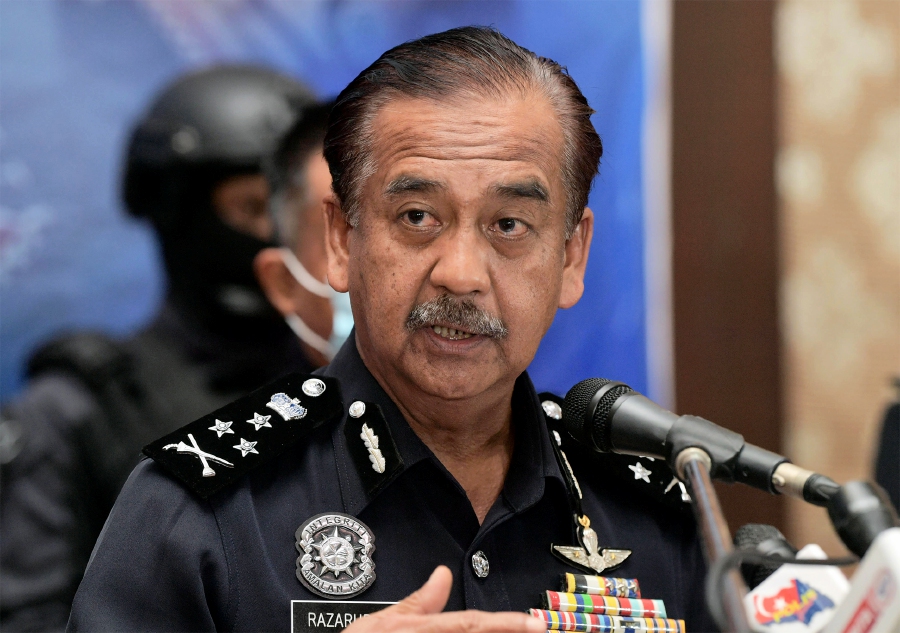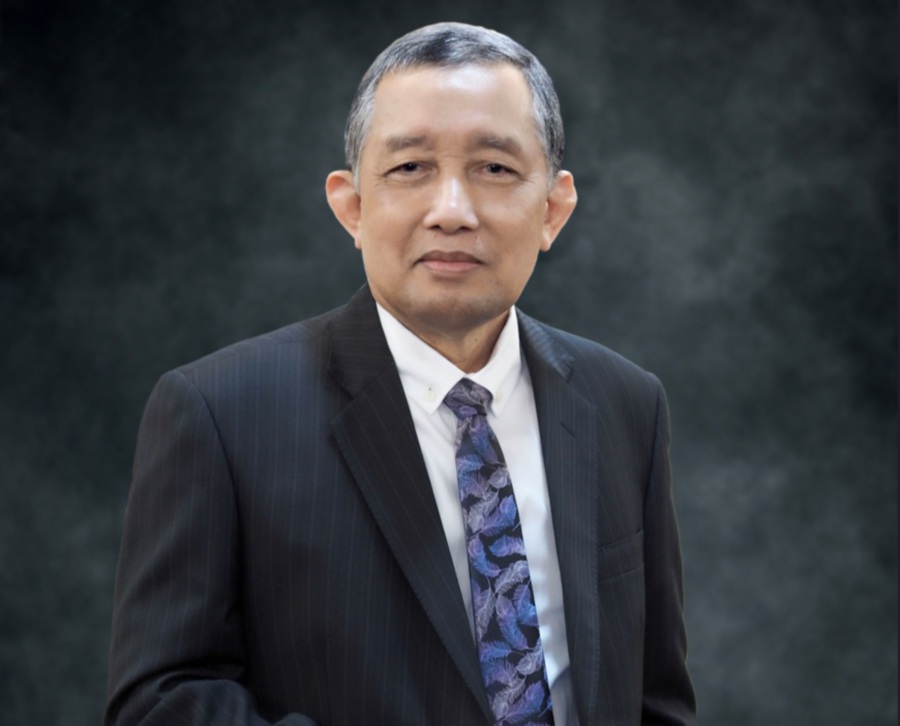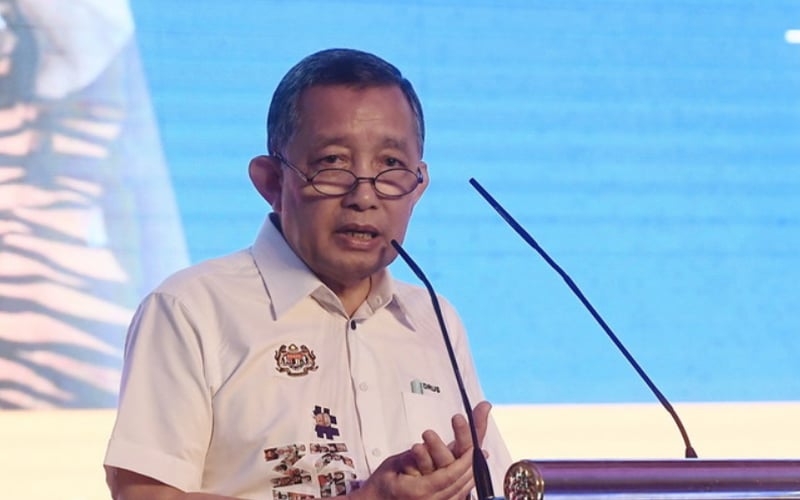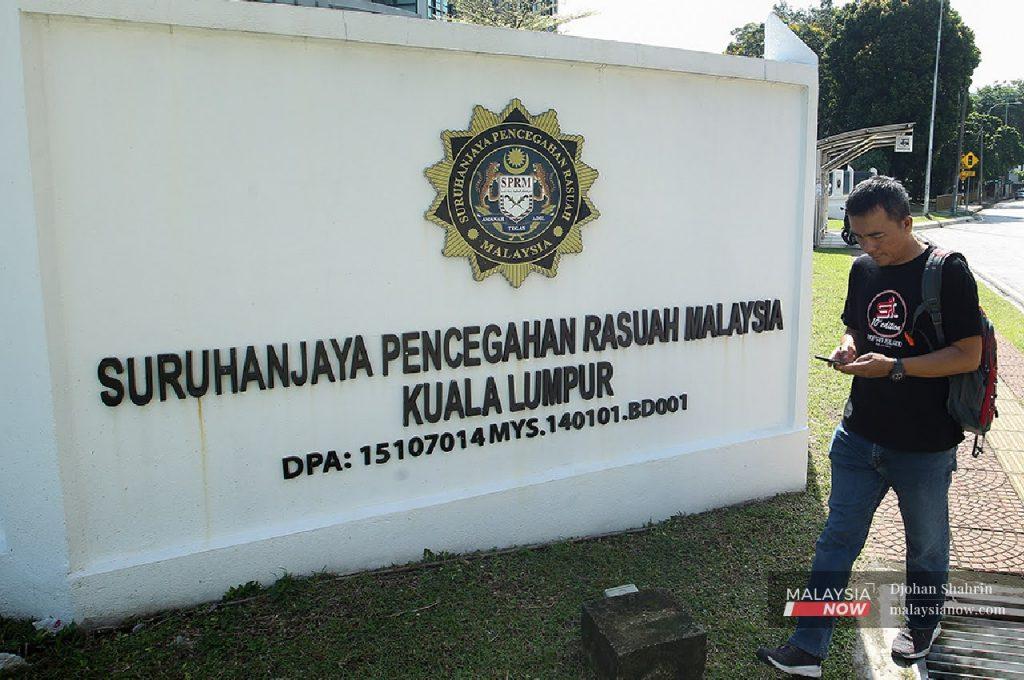Media Statement – 27/10/2023
Abolish Detention Without Trial Law To
Prove That PM Anwar Ibrahim Led-Government Is Truly Committed To Justice, Human
Rights And Rule Of Law
If someone commits a crime, then arrest, detain, charge them and give
them a Fair Trial
On 27th October, the Malaysian
Day for the Abolition of the Detention Without Trial Laws, we recall the infamous abuse of Detention
Without Trial(DWT) laws in Malaysia when on 27/10/1987, about 106 persons from
all walks of life, including human rights defenders(HRDs), politicians( like Mohamad
Sabu, Khalid Samad, Lim Guan Eng, Lim Kit Siang and late Karpal Singh),
academics, worker rights activist, women HRDs and others were arrested and
detained under the Internal Security Act 1960(ISA).
ISA abolished but Detention Without
Trial laws became worse after that
2 of these DWT laws, being the ISA and the Emergency
(Public Order and Crimes Prevention) Ordinance 1969 has since been abolished
around 2012 thanks to amongst others, public protest and campaign. However, one
DWT law remained to this day being the Dangerous Drugs
Act (Special Preventive Measures) 1985.
But after the abolition of these 2 draconian DWT
laws, Malaysia enacted a new DWT law being the Prevention
of Terrorism Act 2015 (POTA), and the Prevention of Crime Act 1959 (POCA) was
amended to become a DWT law.
The scope of DWT laws now in Malaysia is now so
much broader, and allows the administration to arrest, and then detain
indefinitely, or impose restrictions indefinitely on anyone without according the
fundamental right to a fair trial – hence, the victims are unconvicted innocent persons, and as such it is in
violation of the legal principle of presumption of innocence until proven
guilty.
One must not be swayed by the names of any
given DWT law, as they all can be used against anyone, irrespective of whether
they were involved in terrorism, serious crimes or drug offences. After all,
there is no way to verify what the police or government alleges, as victims are
not accorded a trial, and they cannot even apply for a Judicial Review to
confirm the validity of the ‘reasons’ given by the authorities to take action
under any specific DWT law.
Right to Fair Trial Denied
Article 11(1) United Nations Declaration of
Human Rights states ‘Everyone charged with a penal offence has the right to be
presumed innocent until proved guilty according to law in a public trial at
which he has had all the guarantees necessary for his defence.’
In Malaysia, the police or other law enforcement
can arrest persons as suspects who may have committed a crime and can only
detain for no longer than 24 hours for purposes of investigation only.
Article 5(4) of the Federal Constitution
states, that ‘Where a person is arrested
and not released he shall without unreasonable delay, and in any case within twenty-four hours
(excluding the time of any necessary journey) be produced before a magistrate
and shall not be further detained in custody without the magistrate’s authority…’
The reason for this is that it is foolish to blindly
trust the police or the government, and hence the need for a remand application
and order by the Magistrate for any further detention beyond 24 hours.
The suspect has a right to be heard at remand
hearings, and the Magistrate determines whether there really is a need for any further
detention for the purpose of investigation, not any other purpose. The
Magistrate determines whether the law is being complied with by the police,
that there is no torture or any other wrong doing by the police.
If satisfied of the need for further remand,
then and only then will the Magistrate
gives a remand order, and today ‘(a) if
the offence which is being investigated is punishable with imprisonment of less
than fourteen years, the detention shall not be more than four days on the
first application and shall not be more than three days on the second
application; or (b) if the offence which is being investigated is punishable
with death or imprisonment of fourteen years or more, the detention shall not
be more than seven days on the first application and shall not be more than
seven days on the second application…’(Section 117(2) Criminal Procedure Code)
DWT laws usurp judicial role of
Magistrate in Remand Hearings
However, under DWT laws like POCA for example,
when brought before the Magistrate, there is no real remand hearing, and the right
of the suspect to be heard is denied. Before the magistrate, ‘Section 4(1)(a) POCA
states, that ‘…on production of a statement in writing signed by a police
officer not below the rank of Inspector stating that there are grounds for
believing that the name of that person should be entered on the Register,
remand the person in police custody for a period of twenty-one days’.
After 21 days, to extend remand for another 38
days remand, all that is required is the production of ‘4(2)(i) a statement in
writing signed by the Public Prosecutor stating that in his opinion
sufficient evidence exists to justify the holding of an inquiry ….’ and ‘(ii) a statement in writing signed by a
police officer not below the rank of Assistant Superintendent stating that
it is intended to hold an inquiry…’
Judicial authority and discretion of the Magistrate
in remand application hearings is removed, so there can be no consideration as
to whether the police has abused their powers or broken laws, and whether
further detention is really needed at all.
The Magistrate has no choice on production police
statements of belief but to order remand for 21 days. Even in the face of
obvious evidence of torture or abuse, the Magistrate can do nothing about it.
Right to Judicial Review of reasons justifying detention/restrictions denied
In criminal matters, after the remand, the suspect
will be charged in court and accorded a fair trial before an independent judge,
but in DWT laws, there is no charge and no trial. After a criminal trial, if
dissatisfied, you may appeal to higher courts, and in Malaysia, there is a right
of 2 appeals – but in DWT laws, there is no trial and no right of 2 appeals.
Whereas, with DWT laws, the decision is made by
a Board/Minister NOT Courts and Judges.
In fact DWT laws do specifically deny the right
to challenge the REASONS the government use to detain/restrict you. You can
only challenge the procedure – whether the steps taken as required by law that
lead to the Board’s decision was complied with.
15B(1) states ‘ (1) There shall be no judicial review in any court of,
and no court shall have or exercise any jurisdiction in respect of, any act
done or decision made by the Board in the exercise of its discretionary power
in accordance with this Act, except in regard to any question on compliance
with any procedural requirement in this Act governing such act or decision.’
It is absurd as in Malaysia, generally all
Minister’s and even the Prime Minister’s decisions are subject to judicial
review, so there is no justification why the decisions of the Board/Minister
under DWT laws are excluded?
Right to Habeas Corpus denied
Article 5(2) Federal Constitution states, ‘Where
complaint is made to a High Court or any judge thereof that a person is being
unlawfully detained the court shall inquire into the complaint and, unless
satisfied that the detention is lawful, shall order him to be produced before
the court and release him.’ – this is commonly known as the habeas corpus application, but the DWT
laws does not allow any such application, which is in clear violation of the Article
5(2) constitutional guarantee.
Inconsistent with the just principles
of the administration of criminal justice
In short, DWT is in conflict with standards,
norms and principles of the administration of criminal justice in Malaysia. Thus,
anyone, even the innocent, can be arrested, detained and even restricted for as
long as the government decides without any Fair Trial, Right of Appeal or any
recourse to court to challenge the reasons for his/her loss of liberty.
Easy for Police as No Need to Prove
Guilt – Miscarriage of Justice?
DWT laws do not require the police/prosecutor
to even obtain evidence or sufficient evidence to prove to the Board/Minister or
court that a person has committed a crime beyond reasonable doubt. Are our
police/prosecution not competent enough to go to court and prove that he/she is
guilty of a crime?
‘Punishment’ for acts that may not be
a criminal offence in Malaysia
In fact, there seem to be no need to even state the specific offence one under DWT
laws is being ‘punished’ for. Hence, is it not in violation of the principle
that no one can be arrested, detained
or ‘punished’ for something that is not even a legally recognized criminal
offence in Malaysia.
It violates Article 7(1) Federal Constitution,
which states ‘(1) No person shall be punished for an act or omission which was
not punishable by law when it was done or made, and no person shall suffer
greater punishment for an offence than was prescribed by law at the time it was
committed.’ An offence must be clear and precise, and stipulates the sentence
if convicted. It cannot be vague and general.
No DEFINITE period of ‘punishment’ – Grossly
Unjust
In the administration of criminal justice, on
conviction, one is sentenced to a definite
period of imprisonment, or other punishment. But, with DWT laws, there
is nothing definite about the period
of detention or restrictions, for it is indefinite.
In terms of Detention. ‘a detention order for a
period not exceeding two years, and may renew any such detention order for a
further period not exceeding two years at a time, if it is satisfied that such
detention is necessary.’.
Another example is police supervision orders,
where again it can be ‘… any period not exceeding five years if the Board is
satisfied that it is necessary… and may renew any such order for a further
period not exceeding five years at a time…’
Hence, for DWT the loss of liberty, by reason of
detention and other restriction is NOT DEFINITE ..and goes on so long as deemed
necessary, and this is a serious injustice, more so for persons denied a Fair
Trial and who have never been found guilty by court. A person is a victim – not
a convicted criminal when DWT laws are used.
DWT laws is a tool of oppression of unjust governments that allows them to arrest, detain
and restrict anyone, without the right to a fair trial, and without the ability
to go for Judicial Review. The question now is whether this current Pakatan
Harapan led-government of Prime Minister Anwar Ibrahim is a government that is
committed to justice and the Rule of Law will speedily repeal detention without
trial laws or not.
It is true that prominent politicians, human
rights defenders and persons have not become victims of these DWT laws for some
time, but the fact is that many persons in Malaysia continue to be victims of
this draconian law. In March 2023, the Minister revealed that 132 were detained
under POCA, but no disclosure of the numbers detained under POTA or the DD(SPM)A.
Neither was there disclosure as to how many were confined like the people of
Gaza to a town or District, or those under other restrictions/conditions under
DWT laws.(Star, 7/3/2023)
So, is the government committed to justice for
ALL, or will it simply be a hypocrite and retain these draconian laws. It is
sad that some Members of Parliament (MPs) and politicians today absurdly
believe that DWT laws and other draconian laws are still needed for the police
to curb crime.
MADPET (Malaysians Against
Death Penalty And Torture) reiterates the call for the abolition of all
Detention Without Trial Laws including Prevention of Terrorism Act 2015 (POTA),
Prevention of Crime Act 1959 (POCA) and Dangerous Drugs Act (Special Preventive
Measures) 1985.
MADPET calls for the
immediate and unconditional release of all victims of DWT laws that are
currently detained, restricted and under police supervision. If they really committed
any criminal offence, then charge them in court and accord them a fair trial.
MADPET also calls for
the repeal of the draconian Security Offences (Special Measures) Act 2012 (SOSMA),
which is not a Detention Without Trial law, as persons arrested for SOSMA
listed offences will be charged and tried in court.
Charles
Hector
For
and on behalf of MADPET(Malaysians Against Death Penalty and Torture)
Hundreds held under Sosma, Poca and Pota last year
KUALA LUMPUR: A total of 624 individuals were
detained under the Security Offences (Special Measures) Act (Sosma) last
year, says Datuk Seri Saifuddin Nasution Ismail (pic).
The Home Minister added that 140 of these detainees had already been released.
“Of
those detained, 71 were charged in court, 401 were punished, 140 were
released and 12 are still under investigation,” he said in a written
reply to a question by Chow Yu Hui (PH-Raub) in the Dewan Rakyat
yesterday.
Chow had asked about the number of those detained under Sosma, as well as the breakdown of their race and ages.
He
also enquired about the number of those detained under the Prevention
of Crime Act (Poca) and the Prevention of Terrorism Act (Pota).
Last
month, Saifuddin Nasution, in a written reply to RSN Rayer
(PH-Jelutong), said Sosma was still a relevant law to maintain national
security because it allows the police to take immediate action to defuse
any threats to national sovereignty and harmony.
Repealing
Sosma was not among the pledges in Pakatan Harapan’s GE15 election
manifesto, though several DAP leaders had previously criticised Sosma as
having draconian provisions.
Meanwhile, Saifuddin Nasution said those detained under Sosma
last year were between 18 and 69 years old and included 247 Malays, 83
Chinese, 89 Indians, 47 of other races and 158 foreigners.
On
Poca, Saifuddin said that 132 individuals were detained, of which 67
were Malays, 13 Chinese, 38 Indians, 13 of other races and one
foreigner.
He said those detained were between 19 and 59 years old.
Poca,
which was amended in 2015, is a preventative law to deal with
criminals, particularly members of secret societies, terrorists and
other undesirable persons.
Saifuddin Nasution said that only one individual, a Malay, was detained under Pota and is currently under a detention order.
Pota,
which was passed in April 2015, allowed authorities to take action
against Malaysians suspected of being involved with the Islamic State or
other terrorist organisations.
To a written question by Datuk
Wan Saiful Wan Jan (PN-Tasek Gelugor), Saifuddin said that as of Jan 30
this year, 195 individuals were detained under Sosma and are currently
undergoing trial.
Of this total, 46 were for smuggling and human trafficking, two for terrorism and 147 for organised crime under the Penal Code. - Star, 7/3/2023




 Prime Minister Anwar Ibrahim said that if it were up to him, he would have preferred a later court date, after tomorrow’s Pulai and Simpang Jeram by-elections.
Prime Minister Anwar Ibrahim said that if it were up to him, he would have preferred a later court date, after tomorrow’s Pulai and Simpang Jeram by-elections. 
 Former attorney-general Idrus Harun left his post on Sept 5 and was appointed chairman of Amanah Raya Berhad on Oct 10. (Bernama pic)
Former attorney-general Idrus Harun left his post on Sept 5 and was appointed chairman of Amanah Raya Berhad on Oct 10. (Bernama pic) 







